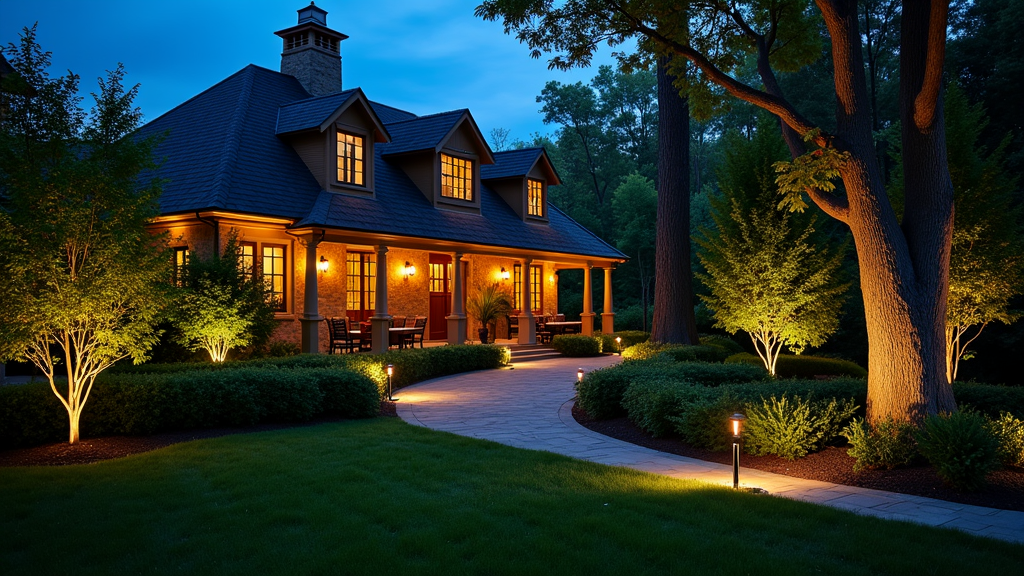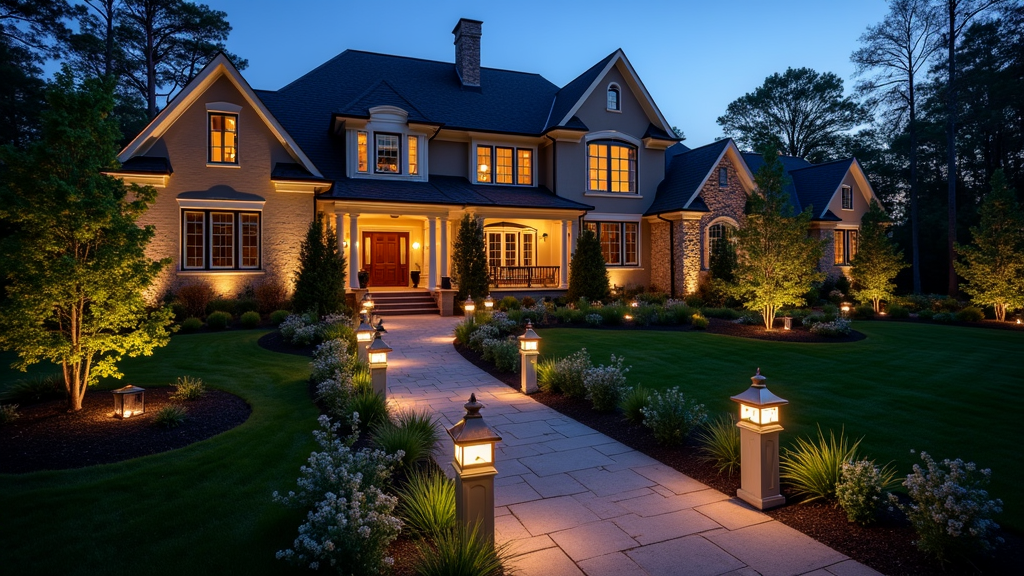When it comes to landscaping in Greensboro, NC, one of the most significant decisions you'll make is selecting the right type of mulch. Not only does mulch enhance the aesthetic appeal of your landscape, but it also serves practical purposes like moisture retention, weed control, and soil temperature moderation. With so many options available, how do you choose? Let’s dive into some expert tips on choosing the right mulch for your landscape in Greensboro.
Understanding the Role of Mulch in Landscaping
What Is Mulch?
Mulch refers to any material spread over the surface of the soil to enhance its quality and appearance. It can be organic or inorganic and plays various roles in landscaping Greensboro, including:
- Moisture Retention: Reduces evaporation from the soil. Weed Prevention: Blocks sunlight from reaching weeds. Soil Temperature Regulation: Keeps the soil cool in summer and warm during winter.
Types of Mulch Available
Mulch comes in numerous varieties. The primary categories are:
Organic Mulch: Composed of natural materials like wood chips, bark, straw, or leaves. These decompose over time, enriching your soil.
Inorganic Mulch: Made from non-biodegradable materials such as gravel or rubber. They don’t improve soil fertility but offer longevity.
Benefits of Using Mulch
Using mulch can significantly benefit your landscape by:
Improving soil health Minimizing erosion Enhancing plant growth Providing a polished look to garden bedsFactors to Consider When Choosing Mulch
Climate Considerations in Greensboro
Understanding Greensboro's climate is crucial when selecting mulch. The region experiences hot summers and mild winters, making it essential to choose a mulch that retains moisture in warmer months while providing insulation during colder seasons.
Plant Type Compatibility
Different plants have varying needs regarding moisture and nutrients. For instance:
- Acid-Loving Plants: Should use pine bark or pine needles. Vegetable Gardens: Benefit from straw or grass clippings as they decompose quickly.
Aesthetic Appeal
Let’s face it—how your garden looks matters! Choose a mulch color and texture that complements your plants and overall landscape design.
Popular Types of Organic Mulches for Landscaping in Greensboro
Wood Chips and Bark
Wood chips provide a rustic look while decomposing slowly over time. They are great for perennial gardens.
Straw
Ideal for vegetable gardens because it decomposes rapidly and enriches the soil.
Grass Clippings
An excellent source of nitrogen but should be used sparingly to avoid matting.
Inorganic Mulches You Might Consider
Gravel
Durable and low-maintenance but may not provide benefits like nutrient enhancement.
Rubber Mulch
Long-lasting and good for playground areas but won’t improve soil quality.
How Much Mulch Do You Need?
Calculating Your Needs
To determine how much mulch you need:

Application Techniques for Best Results
Preparing Your Garden Bed
Before applying mulch, ensure that your garden bed is clean from weeds and debris.
Layering Techniques
Apply mulch evenly around plants but keep it away from their stems to avoid rot.
Maintenance Tips for Your Mulched Areas
Regular Inspections
Check your mulched areas regularly for weeds and replenish as needed since organic mulches break down over time.

Replenishing Mulch Annually
Aim to refresh your mulch every year to maintain its benefits fully.
Tips on Choosing the Right Mulch for Your Landscape in Greensboro, NC
Choosing the right mulch requires considering various factors unique to your landscape needs. Here are some essential tips:
Assess local weather patterns. Understand plant compatibility. Choose based on aesthetics as well as function. Factor in maintenance requirements—some mulches require more upkeep than others. Monitor performance; if you notice issues with plant health or weed growth, consider switching types next season.FAQs about Choosing Mulch
1. What is the best type of mulch for flower beds?
Organic mulches such as shredded bark or wood chips work particularly well due to their aesthetic appeal and ability to enrich the soil over time.
2. How often should I replace my mulch?
It’s generally recommended to replenish organic mulches annually since they decompose naturally within that timeframe.
3. Can I use rubber mulch around edible plants?
While rubber mulch lasts long and is low-maintenance, it doesn’t provide nutrients like organic options do; hence it's better suited away from edible plants.
4. How thick should my layer of mulch be?
Usually, a layer between 2-4 inches is ideal for effective weed suppression while allowing water penetration.
5. Is black plastic a good alternative to traditional mulching?
While black plastic can suppress weeds effectively, it doesn't allow air or moisture through; thus it's not suitable for all types of plants.
6. Can I mix different types of mulches?
Mixing mulches can be beneficial; just ensure they complement each other without conflicting properties.
Conclusion
By applying these tips on choosing the right mulch for your landscape in Greensboro, NC, you're setting yourself up for success! Remember that every garden has unique needs based on its climate conditions and plant types; therefore, https://www.ramirezlandl.com/about take your time assessing what will work best before making a decision! Happy landscaping!
With these insights at hand, you're well-equipped to tackle any landscaping project with confidence! Whether you're planting new flower beds or maintaining existing ones, make sure you give careful thought to your choice of mulch—your garden will thank you!